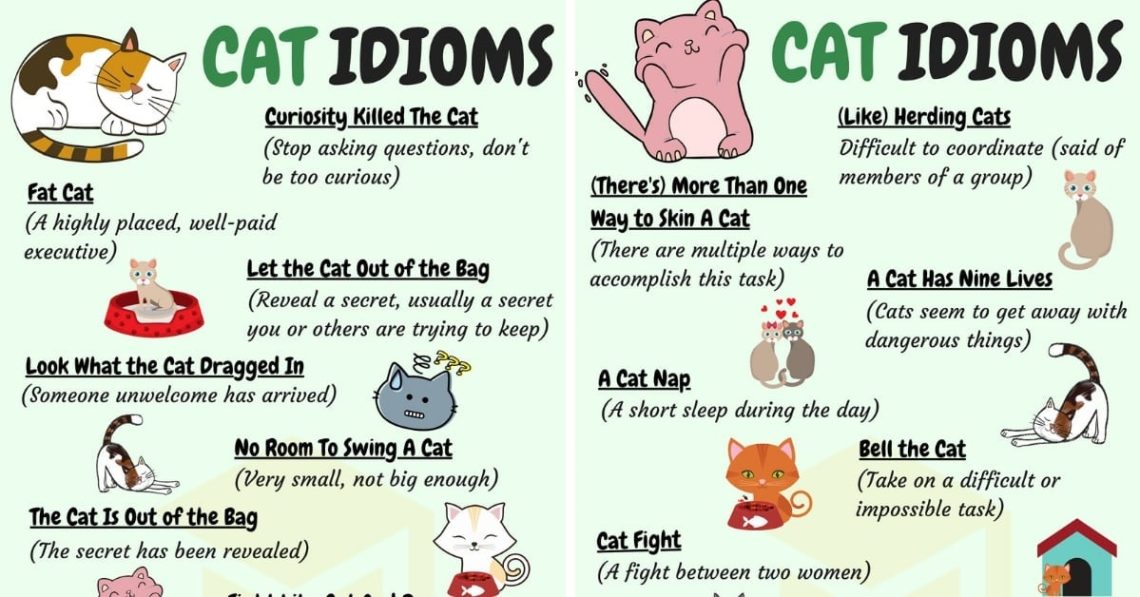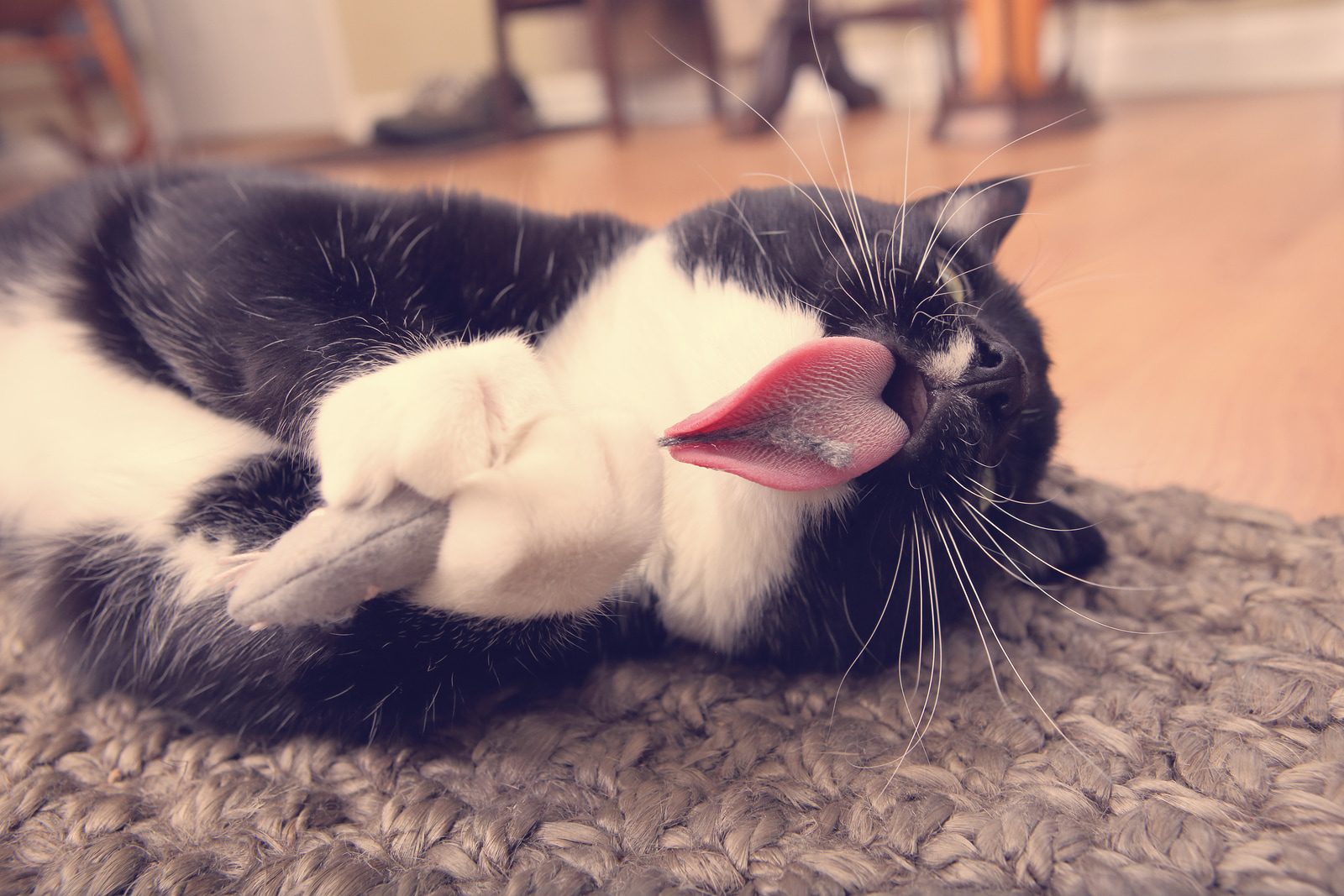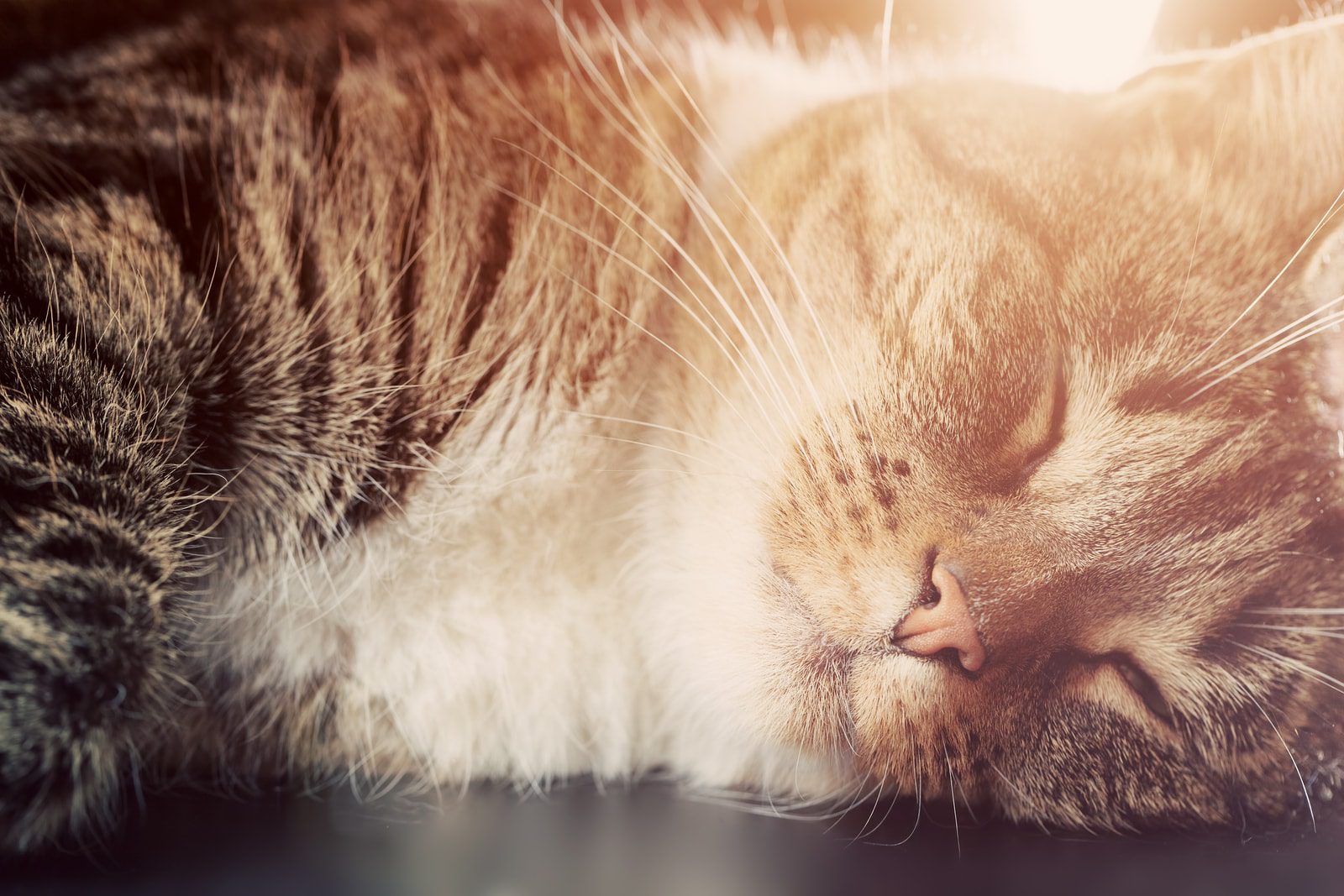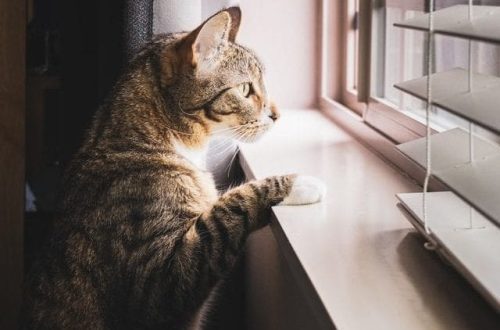
English proverbs and sayings about cats
Various versions of the most famous sayings about cats have existed in various forms of English and Russian for hundreds of years, but how exactly and when did these phrases find their way into modern everyday language?
Cats were domesticated thousands of years ago, and their coexistence with humans has been based on a variety of roles – from a hired worker (to protect the house and outbuildings from rodents) to a beloved pet. Most cat idioms have their roots in comparatively modern history, measured in hundreds rather than thousands of years. And some of them, for example, that a cat has nine lives, or that if a black cat crosses your path, misfortune awaits you, these are more myths than aphorisms about cats.
Cats of all sizes and temperaments have made their way into our daily lives and of course into our conversations! Here are some famous English sayings about these graceful animals.
Contents
 1. Did the cat eat your tongue? (Cat got your tongue?)
1. Did the cat eat your tongue? (Cat got your tongue?)
This, perhaps, the most popular saying about cats should not be taken literally! It is used in situations where the interlocutor is silent, especially if he does not answer the question asked. This idiom probably dates back to ancient Egypt, where the offender’s tongue was cut out and eaten by a cat as punishment for a crime, or to the Middle Ages, when a witch’s cat could steal or paralyze your tongue to render you speechless. None of these options are attractive, but the phrase doesn’t stop being used! In Russian, this saying sounds like “You swallowed your tongue?”
2. Curiosity killed the cat
Cats are known to be curious creatures. Because of this instinctive but somewhat dangerous behavior, even the most intelligent cats can get into trouble if they are not careful, which is the essence of this saying. Don’t ask too many questions or you might regret what you find out. Renaissance playwrights, including Shakespeare, used the phrase in the late sixteenth century, albeit in the form “anxiety killed the cat,” which also appears in Brewer’s 1898 phrasebook, according to Bartleby. In Russian, this proverb sounds like “A curious Barbara’s nose was torn off in the bazaar.”
3. While the cat’s away, the mice will play
In other words, when the boss leaves, it’s time for the fun! Historically, cats, which still retain strong hunting instincts, keep mice away from home and hearth. Dictionary.com reports that the phrase appeared around 1600, although cats were used to catch mice several hundred years before that. In Russia, this proverb sounds like “a cat out of the house – mice dance.”
 4. Like the cat that ate the canary
4. Like the cat that ate the canary
If you have ever been satisfied with completing a difficult task or won an amazing prize, then most likely you had this expression on your face! As noted earlier, cats are natural hunters, and “catching a canary” for them is like getting a big raise or an important award. Conversely, this phrase can also imply guilt in taking something that does not belong to you. “The cat that ate sour cream” is one of several common sayings about cats in England, which, in fact, means the same thing.
5. Let the cat out of the bag
Another popular expression about cats, which means accidentally revealing a secret – oops! Since cats like to hide in small spaces, we often see a cat climbing into a bag, but the exact origin of this phrase remains obscure. Popular rumor says that it may be associated with the whipping punishment (cat-nine-tails) received by sailors of the British Royal Navy for disobedience. It may also refer to the animal trade on the streets of England during the Renaissance. The merchant could sell you a pig in a sack, which actually turned out to be a cat. Even Snopes has taken up the history of this expression, dispelling these myths but offering no clear etymology or origin for the phrase. The only thing that can be said for sure is that this phrase remains popular to this day! But the saying “pig in a poke” means that a person buys something unknown.
6. Cowardly cat (Fraidy- or scaredy-cat)
Pet owners know that cats can be shy, and it is this trait that the idiom used to describe a timid or fearful person is based on – more often in childhood than in adulthood. The Online Etymology Dictionary notes that by 1871 the expression was being used in American-English slang to describe cowardice.
Obviously, cats have played a significant role in world history and have thus crept into a lot of popular idioms, so people probably don’t even think about what they say or where it came from. But now, the next time you hear a person use one of these phrases, you may be able to surprise them with the breadth of your knowledge of the general history of sayings about cats. He may even think that you are “cat pajamas” (that is, the interlocutor is what you need)!



 1. Did the cat eat your tongue? (Cat got your tongue?)
1. Did the cat eat your tongue? (Cat got your tongue?) 4. Like the cat that ate the canary
4. Like the cat that ate the canary

